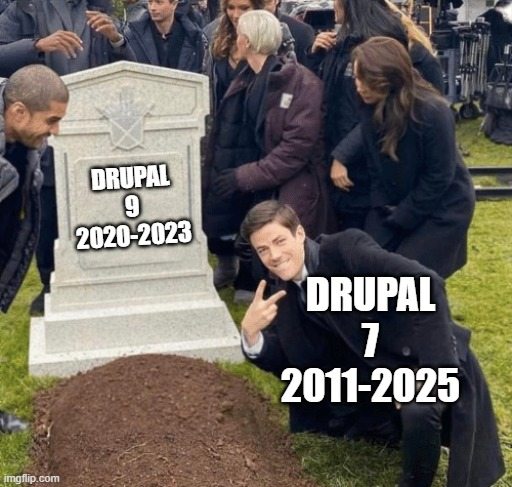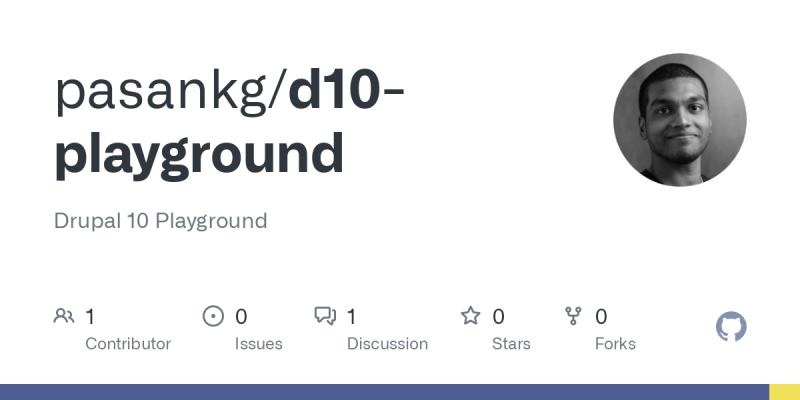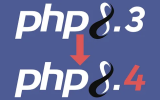Drupal Dilemmas: End-of-Life Tangles, Alternatives and Quest for Better
Since Drupal 9 reached end-of-life, the community has seen quite a stir. The noise isn't solely about Drupal 9's EOL but also around the persistent existence of Drupal 7. In some circles, there's a sentiment akin to Drupal 9 experiencing an untimely demise while Drupal 7 continues its seemingly perpetual journey. Interestingly, the Drupal 7 will only end its service on 25 January 2025, 12 years after its introduction. I was fortunate enough to stumble upon one of these emotional discussions brimming with frustration, contemplation, and conviction on Reddit.
"I wish I had some of what the Drupal organizers are smoking,"
began one exasperated developer. He finds himself in a rollercoaster of narratives tangled in a web of End-of-Lives, its extensions, migration hurdles, and an upgrade to new versions in short timespans. The saga began with the promise of Drupal 7 (D7) reaching its EOL, urging developers to usher clients into the realms of Drupal 8 (D8). However, the plot takes an unexpected twist with an unforeseen narrative shift.
"D9 quickly goes EOL, but D7 support gets extended YET AGAIN, this time into 2025!!!

The blatant disregard for still running Drupal.org in Drupal 7 did not escape the argument either.
Amid these challenges, a recurring theme emerges – the perception that Drupal may be losing touch with the needs of its user base. The platform is criticized for its perceived complexity, high implementation costs, and a seemingly unpredictable EOL and upgrade cycle. Users argue that most organizations prioritize predictability and cost-effectiveness over the underlying technicalities of their CMS. Drupal is losing its customers due to the overt complications it presents while trying to be an enterprise-level CMS.
However, there are enough certifications towards the mammoth strengths of the CMS and the seamless upgrades it provides. "Drupal is the way to go with a solid, stable CMS if you're into PHP," adds one. Although there are a few drawbacks, many agree that the platform is far better than it was just a few years ago.
This spur of concern further went down the road of a riveting exploration of alternatives that could match Drupal's prowess while addressing its perceived drawbacks. The discourse steers in an intriguing path on posing a compelling question:
The user, while recognizing the set cons of the system, can't seem to find an enterprise-level CMS that can beat Drupal in its game. Since having embarked on a new website journey with Drupal 10, he extols the virtues of Drupal's structured approach and the marvels of Fields and Views.
Every system has pros and cons; while it's not okay to find solace in the strengths and ignore the vulnerabilities, acknowledging the strengths is important. Drupal stands out for its versatile and unique features. To borrow the words of the founder himself,
"Drupal is placed perfectly in the middle of a spectrum; on one end, you have developer frameworks, and on the other end are SaaS tools accessible to everyone."
What can be the suggested alternative that can compare to Drupal's openness, with a preference for self-hosted solutions that provide control and flexibility? The user seeks powerful features akin to Drupal's famed Fields and Views, systematic content organization through taxonomies, and a vibrant user community fostering collaboration and support. The need for integrated e-commerce options, seamless social media integration, and multi-language support further underscore the user's vision for a comprehensive CMS.
WordPress is a popular choice for its user-friendly interface, but concerns about scalability for larger projects linger. You can't build a website for an online magazine with millions of users on WordPress. Joomla, largely absent from the conversation, is remembered as a platform that once sat between WordPress and Drupal in terms of complexity.
Despite its robust e-commerce capabilities, Magento is criticized for being too heavy and focused solely on e-commerce. Strapi is thrown into the ring but is deemed expensive for its feature set, and its headless nature may not align with everyone's needs. So, we will need Drupal to outperform Drupal!
In conclusion, the Reddit inquiry encapsulates the intricate juncture in seeking the perfect CMS. It mirrors the sentiments of a community balancing Drupal's strengths against perceived drawbacks, all while on a quest for a versatile platform aligning seamlessly with diverse project requirements. As the landscape widens and competition tightens, users navigate this journey, exploring alternatives, questioning capabilities, and ultimately seeking a CMS that strikes the elusive balance between power, flexibility, and user-friendly design.
Note: The vision of this web portal is to help promote news and stories around the Drupal community and promote and celebrate the people and organizations in the community. We strive to create and distribute our content based on these content policy. If you see any omission/variation on this please let us know in the comments below and we will try to address the issue as best we can.




















